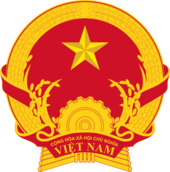Recently, capitalizing on youth protests – also referred to as Generation Z protests – in some South Asian and Southeast Asian countries, reactionary elements and organizations, along with media channels hostile to Vietnam, have been actively publishing numerous articles, images, and clips. Their aim is to incite extremist ideologies, sow the seeds of protest, riots, and “color revolutions” among the youth in Vietnam. It is necessary to warn about and expose this plot in order to devise effective measures to prevent it.
On the Fanpage of the Viet Tan terrorist organization and the Facebook pages of reactionary forces, numerous articles have been actively posted recently with the intent of inciting the younger Generation Z. Examples include titles like: “When Gen Z Gets Angry: A Wake-up Call for Dictatorial Regimes,” “Philippines Takes to the Streets Against Corruption, Nepal and Indonesia Unite for Transparency and Justice. The People’s Voice is the Greatest Power!”… Articles of this nature consistently blame political instability in certain South Asian and Southeast Asian countries on government control, dictatorship, and oppression. From there, they draw connections to the political situation in Vietnam and incite the people, especially the youth, to “rise up” and take to the streets in protest using rhetoric such as “all socialist regimes are dictatorships”; “protest is the only path to change”; “Sooner or later, Vietnam will become unstable like Nepal and Indonesia”…
They thoroughly exploit social events and incidents, then doctoring images and creating fake videos to exaggerate and smear. From the natural disasters and floods affecting Northern provinces to the recent fire in Hanoi that killed five people, all have become opportunities for these reactionary websites to attack, blame, and defame the government. If not provided with transparent and timely information, many citizens, especially the younger generation, could be misled, spreading fake news, causing confusion, and eroding social trust.
Violent protests against the Government, initiated by youth, in the capital Kathmandu, Nepal on September 8, 2025. Photo: TTXVN
The reality of recent protests and riots in some Southeast Asian and South Asian countries shows that the youth, also known as Generation Z, are being exploited and pushed to the front lines. Generation Z is the term for those born between 1997 and 2012, a cohort born during the internet explosion, exposed to digital technology from a young age, adept and highly adaptive to mobile devices and social media like Facebook, YouTube, and TikTok. This generation is considered creative, unafraid to experiment with new things, willing to take risks, and daring to think and act to create new trends. A segment of Gen Z accesses Western culture through social media, and due to their youth, they often lack a sufficient filter to clearly distinguish true from false, right from wrong. These characteristics align well with the schemes of malign forces who use digital platforms and social media to instill selfish, hedonistic, pragmatic, and deviant lifestyles, promoting aberrant foreign cultures. This leads to the moral degradation and decline of many young people, steering them away from the nation’s fine traditional culture, thereby brainwashing and inciting Gen Z to carry out acts of opposition and subversion against the government. To some extent, this scheme has been successfully realized in practice in some South and Southeast Asian countries.
In Vietnam, the ultimate goal of the bad actors is to create a crisis of trust, ideology, and value standards across social strata, especially among the youth. Their tactics are diverse: establishing websites, opening forums and groups on social media to disseminate reactionary documents and propagandize for ideological sabotage; using digital technology and cyberspace to spread distorted, fabricated, and defamatory information, causing social opinion disturbances, directly impacting the awareness and stance of the younger generation.
The content of their distorting and inciting propaganda primarily leverages issues of public concern in social life, such as corruption, negative phenomena, environmental pollution, land complaints, and sea and island sovereignty… They criticize Vietnam for violating democracy and human rights, lacking internet freedom, falsely claiming that “the government oppresses the people,” while praising and glorifying the model of capitalist-style “democracy and freedom.” From there, they call for gatherings to cause disturbances, protests, riots, and to overthrow the government. Understanding that Gen Z individuals often have vague and limited understanding of political, social, and international issues, the hostile forces fabricate claims that protests in Nepal or Indonesia stem from “control by communist governments,” even though these countries are multi-party states.
The bad actors constantly strive to create figureheads among the youth, vigorously promoting these individuals as possessing “social criticism” abilities and “leadership” potential to create a “better new society,” immersing them in the illusion of a pluralistic, multi-party, democratic society with human rights. Thereby, they incite opposition to the Party’s line and the State’s policies and laws.
Vietnam is a country with a young population. According to the Statistics Office, the number of people of youth age (from 16 to 30 years old) is over 20 million, accounting for about 20.1% of the national population. Meanwhile, the vast majority of young people use social media.
Currently, the overwhelming majority of young people possess patriotism, national pride, good political awareness, and actively contribute their efforts to society and the country’s development. This was clearly evident during the recent commemorations of the 80th anniversary of the successful August Revolution and National Day (September 2nd). The younger generation clearly expressed gratitude and pride for living in a peaceful, unified country that is developing rapidly.
However, there remains a segment of youth influenced by foreign culture, whose revolutionary ideals have faded, who lead pragmatic lifestyles, are easily affected by the negative aspects of the market economy, and are susceptible to being enticed and incited by erroneous information and viewpoints. Therefore, educating the youth to understand the nature of “color revolutions” is extremely important. This is also the basis for them not to be confused or deluded by enemy calls for street revolutions, nor influenced by urgings to struggle to overthrow the regime “for a better future,” for “freedom, democracy,” which would ultimately turn the country into ruins, desolation, war, riot, and instability.
Consequently, agencies, sectors, localities, and political-social organizations need to strengthen political education, ethical lifestyle education, foster revolutionary ideals, patriotic traditions, and national pride among union members and youth. It is necessary to warn young people and students to clearly understand the plot and nature of “color revolutions,” to stay away from organizations masquerading as civil society and movements impersonating “patriotism” that are essentially calling for gatherings causing security and order disturbances. The youth must maintain high vigilance when using social media, possess a spirit of struggle, resilience, the ability to recognize harmful information, and adhere to standards when participating in the online environment, avoiding the trap of sharing and spreading unfounded rumors. It is essential to build and promote the role of official journalism and information on all platforms, thereby avoiding creating a vacuum for reactionary elements to exploit in disseminating distorted information.
Simultaneously, Party committees and authorities at all levels need to focus on developing the economy and society, raising the educational level of the people, ensuring employment, and improving the people’s living standards. When people can work with peace of mind and their lives improve, they are less likely to listen to inciters and provocateurs.
QUANG HƯNG
It’s good to see this level of awareness of the danger that the new color revolution playbook poses. It seems this playbook is especially dangerous in countries that don’t have a strong enough national culture to resist the assault of western culture on the minds of the youth.
China i think is very resilient to this type of plot because it has a strong cultural identity and is insulated to some degree from the West’s cultural hegemony, even in the online sphere. There is little to no chance of something like this happening in China. But countries like Vietnam where western culture has penetrated to a relatively greater degree and where their own cultural industry (literature, music, cinema, online culture, etc.) is not as strong and its products not as attractive to the youth, are much more vulnerable and need to take active efforts to combat these sorts of schemes.
Ultimately i think it will be necessary to implement some variant of the Great Firewall, because countries that aren’t the size of China are unlikely to have the ability to compete with the West’s cultural output and will inevitably become psychologically colonized otherwise.
China’s great firewall is one of the greatest things to ever happen in the digital era, knowing how Western soft-power and imperialist surveillance are borderless now.
I think as China’s cultural soft power increases the Firewall will become less and less necessary, and it will be Western countries starting to erect digital walls to keep Chinese influence out.
Just like they have already had to put up protectionist barriers against Chinese products they just can’t compete with, like EVs.
Once their bourgeois propaganda media empire fully loses every remnant of its monopoly on truth, for sure. It’ll be out of eventual fascist policy or the final strategy of status quo preservation. Its first phase will be taking shape in the form of regional algorithm auditing like Oracle is doing with Tiktok.
That’s a really key point. It makes me think the firewall is less of a permanent ideological wall and more of a strategic tool, like protectionism for a developing digital economy. It gives local platforms and culture the space to grow without being immediately overwhelmed.
China’s path seems to prove this out. They used that space to build up their own cultural confidence and tech power to the point where the West is now the one getting nervous about their influence.
It seems like the real endgame for any of this isn’t the protection itself, but what you can build because of it, a prosperous society and a culture that’s strong enough to stand on its own. The tool itself becomes less critical over time if you succeed at that.
Agreed.
Ta bom, Vietnam, you did the first half of the battle: understanding the enemy in order to defeat it!




